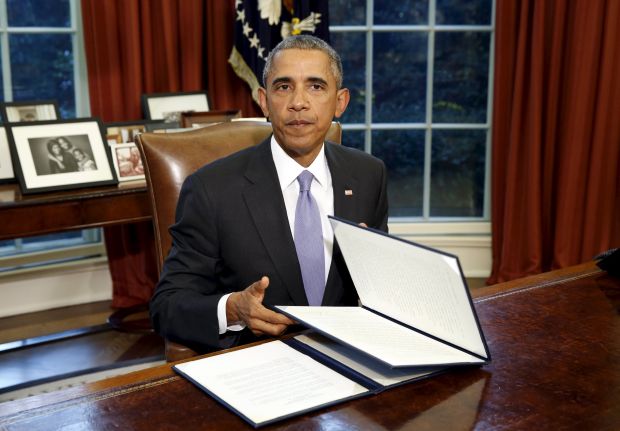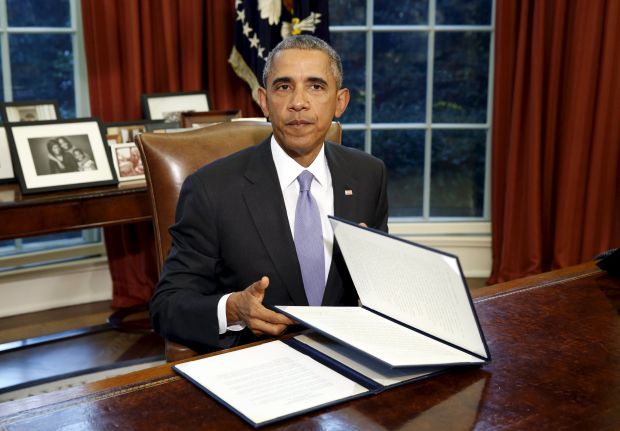Reuters: Obama vetoes defense bill, sends it back to Congress

U.S. President Barack Obama vetoed a sweeping $612 billion defense policy bill on Thursday, returning the measure to the Republican-controlled Congress because of the way it uses money meant for war spending to avoid automatic budget cuts to military programs, according to Reuters.
"I'm going to be sending it back to Congress and my message to them is very simple: 'Let's do this right,'" Obama told reporters, Reuters wrote.
"We're in the midst of budget discussions. Let's have a budget that properly funds our national security as well as economic security," he said.
Obama also said he disagreed with provisions in the National Defense Authorization Act (NDAA) that would have limited his ability to close the Guantanamo Bay detention center before he leaves office in January 2017.
"Guantanamo is one of the premier mechanisms for jihadists to recruit," he told reporters at a rare White House veto signing ceremony.
"It's time for us to close it. It's outdated, it's expensive, it's been there for years. We can do better in terms of keeping Americans safe while making sure that we are consistent with our values," he said.
Closing the controversial military prison camp was a main promise of Obama's first presidential campaign, in 2008.
Obama and many of his fellow Democrats want a broader budget deal that would address mandatory cuts in domestic spending rather than only providing more funds for the Pentagon.
Republicans argue that the military should be spared many of the so-called sequestration budget cuts to ensure national security. They accuse Democrats of using the issue to camouflage a desire for irresponsible domestic spending.
"By placing domestic politics ahead of our troops, President Obama has put America's national security at risk," John Boehner, the Republican speaker of the House of Representatives, said in a statement.
Republicans have vowed to override the veto, only the fifth of Obama's presidency, which would require two-thirds majorities in both the House and Senate.
Nancy Pelosi, the House Democratic leader, insists the House will sustain it.
Under congressional rules, the House will consider the veto before the Senate. A vote has been scheduled for November 5.
Democrats insisted a better NDAA would pass easily if the veto is sustained.
"Hopefully we can work together to pass a more balanced and responsible NDAA that truly provides our troops with the resources and budget stability they need," said Senator Jack Reed, the top Senate Armed Services Committee Democrat.
The vetoed document foresaw, among other things, the allocation of arms to Ukraine to the tune of $300 million.
The document does not oblige but authorizes U.S. Secretary of Defense Ash Carter and U.S. Secretary of State John Kerry to use $300 million to provide Kyiv with security assistance.
This includes the transfer of intelligence information in the real-time mode and the so-called "lethal aid" to Ukraine, namely the supply of anti-tank weapons, mortars, other systems, as well as ammunition, rocket-propelled grenades, and small arms.
Политика конфиденциальности | Правила пользования сайтом








